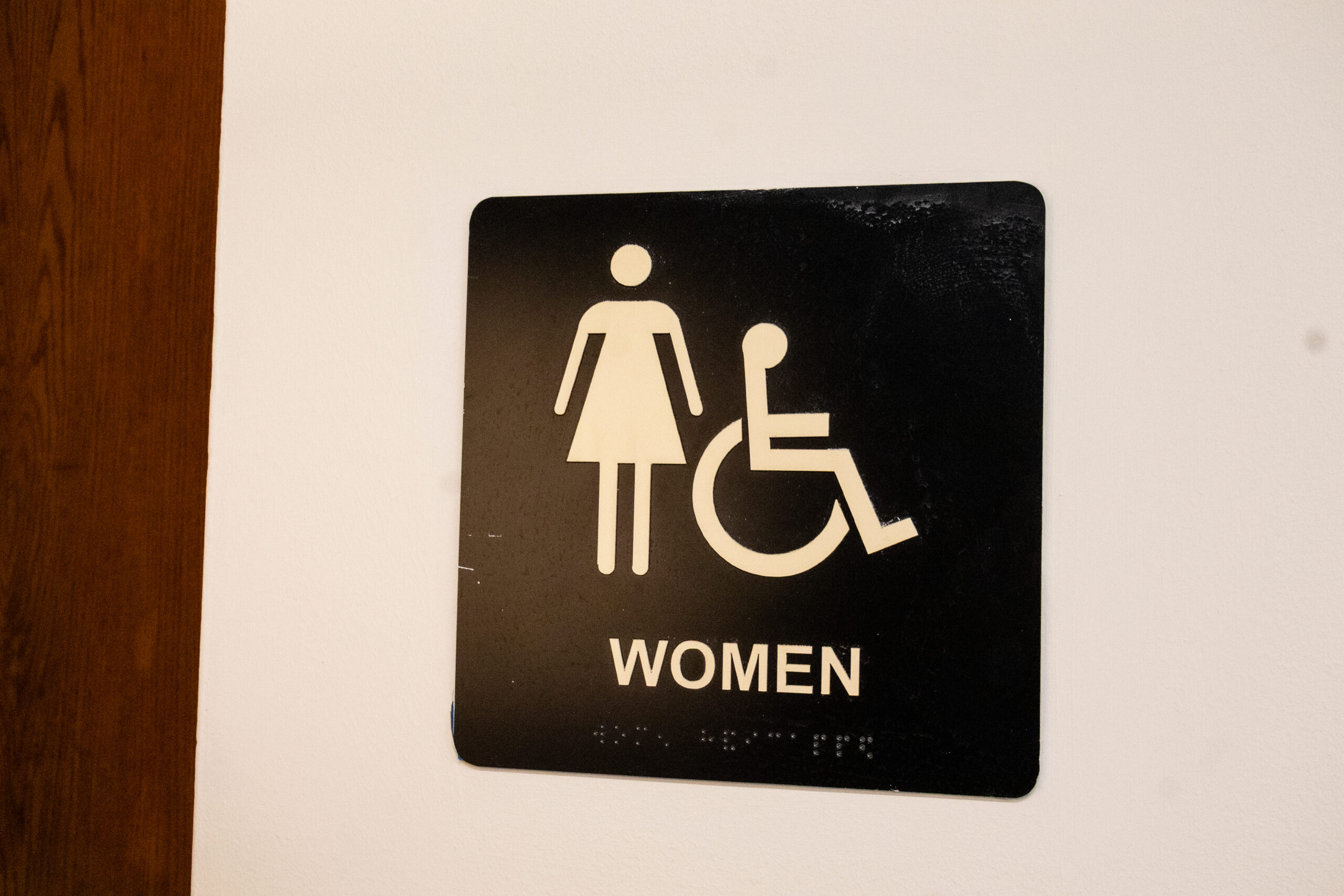The fourth floor of the Bryn Mawr dorm Brecon Hall has a bathroom designed for accessibility, equipped with railings and a shower seat. The only thing standing between this “wheelchair accessible” bathroom and a person in a wheelchair who needs it is three flights of stairs. Brecon, like nearly all Bryn Mawr dorms, has no elevator. The result is a bathroom designed for accessibility that remains entirely inaccessible to those relying on it. Brecon’s fourth-floor bathroom is just one example of Bryn Mawr’s persistent, systemic accessibility issues.
Much of Bryn Mawr’s campus remains off-limits for students with limited mobility. Esénia Bañuelos, BMC ‘26, a student leader in disability rights on campus—serving as Co-President of Enable and Founder of Students for Disability Justice—described the campus as “impossible” to navigate for students with physical disabilities.
The layout of most dorms, for example, makes the social aspect of campus life incredibly inaccessible. Nine of the thirteen dorms do not have elevators, and several have no accessible entrances at all. Rhoads South, home to the Intercultural Living and Learning Center (ILLC), has an elevator, but it does not go to the top floor, meaning students with physical disabilities are excluded from living on the Interfaith Engagement floor. Even dorms that tried to incorporate accessibility fall short. Although New Dorm and the Enid Cook Center (ECC) have elevators and wheelchair ramps, the Students for Disability Justice SGA Committee found that they were still not accessible. Bañuelos pointed out that New Dorm’s tiled wheelchair ramp makes it a safety hazard for students using a cane or crutches, while the ECC’s wheelchair ramp is far too narrow for most sizes of mobility aids with wheels. Bañuelos also emphasized that simply being able to enter a dorm does not make it accessible. Dorms also must have accessible bathrooms and laundry rooms for students with physical disabilities to live in or visit.
Academic buildings are no better. Only two — Dalton Hall and Park Science Center — are technically accessible, though the Students for Disability Justice Committee found Park’s wheelchair ramp to be far too steep to be practical. Key academic buildings, like Taylor Hall and English House, which host classes and faculty offices, remain largely inaccessible. Several buildings lack viable accessible entrances altogether.
Phoebe Veitch, BMC ‘28, experienced Bryn Mawr’s accessibility issues firsthand when she spent time on crutches after an injury. She lived on the 3rd floor of Denbigh, a dorm without elevators. She pointed out that Access Services’ solution to move her to a different dorm was infeasible, since she had no support from administration in moving out. Veitch noted that even tasks like opening doors were inaccessible to student with physical disabilities without proper accommodations, like push to open buttons. Veitch found it especially difficult to navigate getting to her classes. In her experience, “none of Bryn Mawr’s architecture was built with people with disabilities in mind.”
Access Services, the department responsible for student accommodations, has been a consistent source of frustration. Bañuelos told the Bi-Co News that the department has often been unaccommodating and unresponsive to student needs. Bañuelos herself recalled being denied an academic accommodation she was supposed to be entitled to per the Americans with Disabilities Act. During her time as the head of the SGA Access Services committee, Bañuelos also noted that the department’s former director, Deb Adler, was resistant to student-led advocacy for improved accessibility.
Access Services’ website promises they “welcome the full participation of individuals with disabilities in all aspects of campus life.” Unfortunately, “all aspects of campus life” seem to only extend to the first floor of a handful of buildings, and the upper floors of even fewer.
However, change may be on the horizon. Deb Adler stepped down last semester, and Joanna Timmerman assumed the role of director on March 10th. Timmerman told the Bi-Co News that she plans to break down barriers and provide accommodations when that isn’t possible. She also committed to fostering more open communication with students, including inviting them to join conversations about accessibility. Bañuelos shared that Timmerman has already been incredibly responsive to student concerns.
If Bryn Mawr wants to live up to its values of inclusion and equity, it has a long road ahead. Real change will require more than promises; it will demand time, money, and a sustained commitment to listening to student voices. It’s time for Bryn Mawr to stop treating accessibility as an afterthought and start treating it as a priority.
